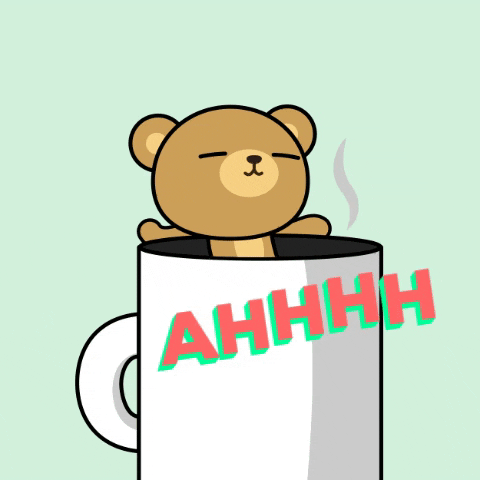We use cookies on our website for a number of purposes, including analytics, performance, and advertising. Learn more.
OK!
Boo
SIGN IN
Toxic Traits of an ESTJ: Unveiling the Dark Side of the Executive Personality
By Derek Lee
Hello to all the Executives out there, as well as those who love or work with one. We know that you didn't click on this to pass time. Something's up—either within you as an ESTJ or with an ESTJ close to you. Perhaps you're grappling with issues that seem to contradict the strong, reliable exterior we Executives are known for. Maybe relationships are strained, or there's a persistent cloud of negativity you can't shake.
Here's the nitty-gritty: This is a no-holds-barred exploration of the traits that can turn toxic in our ESTJ personality type. We'll dive into the psychology that drives us, including our cognitive functions. You'll leave with a thorough understanding of why these traits may develop and how to tackle them head-on for a more harmonious existence.
Explore the ESTJ Wellness Series
- Wellness for an ESTJ
- 10 Things that Excite ESTJ
- The Guide to ESTJ Anger
- How ESTJ Handle Stress
- Surprising Sexuality of ESTJ
A Deeper Look at the Traits of the ESTJ Personality
If you're an ESTJ, you're likely aware of the basic traits that define us: our penchant for organization, our assertiveness, and our devotion to logic and detail. However, each trait has its nuances, and it's crucial to understand these subtleties to pinpoint where toxicity might sneak in.
- Organized: Sure, we like things neat and structured, whether that's our workspace or our plans for the weekend. But when taken to an extreme, this can morph into obsessive behavior.
- Assertive: We have no qualms about taking charge and mobilizing people toward a goal. Yet, this assertiveness can become domineering, leaving little room for others' input.
- Practical: We prioritize facts, efficiency, and concrete results. But the downside is that we can dismiss imaginative or creative solutions.
- Loyal: Our loyalty is often unwavering, which is generally a good thing. However, misplaced loyalty can trap us in negative situations or relationships.
- Disciplined: We have a set of rules and expectations that we adhere to. The problem arises when we impose these standards rigidly on ourselves and others, leading to unnecessary stress.
Peeling Back the Layers on Specific Toxic ESTJ Traits
Understanding the cognitive functions—Te (Extraverted Thinking), Si (Introverted Sensing), Ne (Extraverted Intuition), and Fi (Introverted Feeling)—can shed light on why certain traits may become toxic for us ESTJs. Let's break it down.
Overbearing
Being overbearing is when our natural assertiveness flips a switch and starts to infringe on others' space or autonomy. For example, in a team setting, you might find yourself monopolizing the conversation and ignoring any suggestions that deviate from your vision. This toxic tendency is an exaggerated expression of our dominant Te function, which focuses on organizing the external world for efficiency.
Inflexible
Inflexibility manifests as an unwillingness to deviate from established procedures or to consider alternative approaches. If a team member suggests a new, more streamlined method for a project, you might disregard it because "that’s not how things have been done here." This rigidity is linked to our Si function, which prizes past experiences and proven methods.
Insensitive
Insensitivity in an ESTJ appears as a lack of concern or acknowledgment of others' feelings or emotional needs. Say a friend is struggling emotionally; you might tell them to "just get over it" rather than providing emotional support. This issue arises from an over-reliance on Te at the expense of our less-developed Fi, which should govern our internal values and emotional nuances.
Judgmental
A judgmental attitude can emerge when we hastily label people or situations based on our internal set of standards. If someone doesn’t meet your high expectations at work, you might categorize them as incompetent or lazy. This toxic trait is associated with our less developed Fi function, which, when imbalanced, can make us quick to impose our values on others.
Exploring Why Toxic Traits May Develop
Understanding why these toxic traits surface is crucial for tackling them effectively. Let's dig into some common factors.
Lack of emotional awareness
For many ESTJs, emotional intelligence isn't a strong suit. We often focus so intently on tasks, efficiency, and logical problem-solving that we overlook the emotional components of interactions. This lack of awareness not only affects our personal relationships but can also hinder teamwork and collaboration in professional settings.
Insecurity
Insecurity can surprise even the most steadfast among us. When ESTJs feel insecure, they might double down on control or become excessively critical, both as a defense mechanism. This false bravado can be destructive, leading to strained relationships and a toxic work environment.
Environmental factors
The external conditions we operate in can amplify our worst traits. For instance, a high-stakes, high-stress job may exacerbate our tendencies to be controlling or insensitive, especially if we feel that our established methods are the only way to succeed.
Steps Toward Changing Toxic Traits
Acknowledging one's flaws is the first step, but the journey doesn't stop there. Here are some strategies for improvement.
Self-reflection
Pausing for self-reflection involves more than just a quick skim of your behaviors. It demands a deep, sometimes uncomfortable, look into your actions, their motivations, and the impact they have on others. You might find it helpful to journal or talk through these observations with someone you trust.
Openness to change
Being open to change isn't just about swapping out one strategy for another. It requires a fundamental openness to different viewpoints and a willingness to question your established methods. This can be a tough pill to swallow for us ESTJs, but it's essential for growth.
Empathy training
Simply acknowledging that you need to be more empathetic isn't enough. Empathy training can be a structured way to develop this skill. This might involve reading books on emotional intelligence, practicing active listening, or even engaging with exercises designed to improve your understanding of emotional cues.
FAQs
Why do ESTJs seem so controlling?
It's part of our natural drive for efficiency and order, thanks to our dominant Te function. But it becomes a problem when it stifles others' autonomy and creativity. Effective control is about coordination, not domination.
Is emotional insensitivity common among ESTJs?
Yes, because our Te function can overshadow our Fi. We often prioritize tasks over people, leading us to overlook the emotional aspects of situations. It's something many of us need to work on actively.
How do I deal with an overbearing ESTJ?
Be straightforward and assert your boundaries. We generally respect directness and clear communication, even if the message is uncomfortable for us to hear.
Can ESTJs improve their emotional intelligence?
Certainly. Like any skill, emotional intelligence can be honed with effort and practice. Many Executives have successfully enhanced their emotional awareness through targeted exercises and education.
Why do ESTJs stick to traditional methods?
Our Si function values tried-and-true methods because they offer a sense of security and predictability. However, this can hamper innovation and adaptability, which are crucial in today's fast-paced world.
The Road Ahead: Your ESTJ Journey to Self-Improvement
We've laid it all out—the good, the bad, and the areas ripe for improvement. As disciplined and structured individuals, we ESTJs have the tools to drive meaningful changes in our lives. The first step is acknowledging where we can do better. From there, it's all about setting a plan into motion and sticking to it—something we're naturally good at. Here's to being the best version of ourselves.
MEET NEW PEOPLE
JOIN NOW
20,000,000+ DOWNLOADS
ESTJ People and Characters
Friendship and Emotional Support: Navigating the Waters of Mental Health Together
Unplugging to Reconnect: The Transformative Power of a Social Media Detox on Mental Health and Relationships
Unlocking Stress Management Strategies for Thinking Types
Transforming Tension: A Feeling Type's Guide to Managing Stress and Anxiety
Universes
Personalities
Personality Database
Meet New People
20,000,000+ DOWNLOADS
JOIN NOW


























